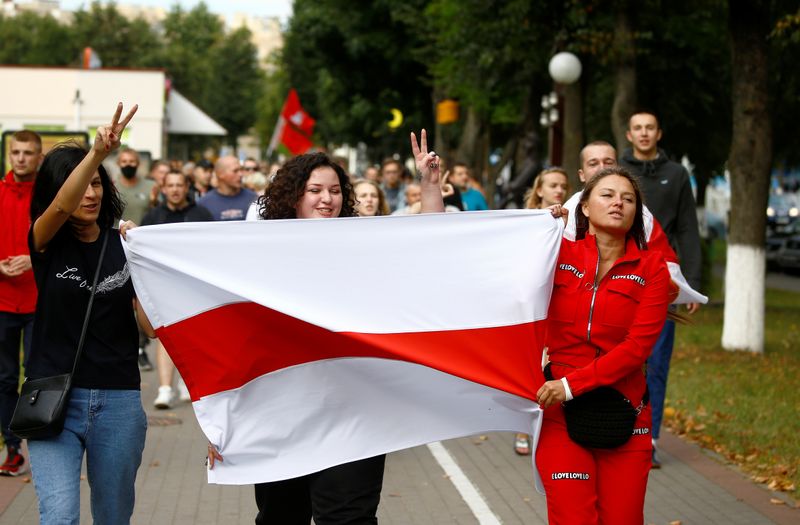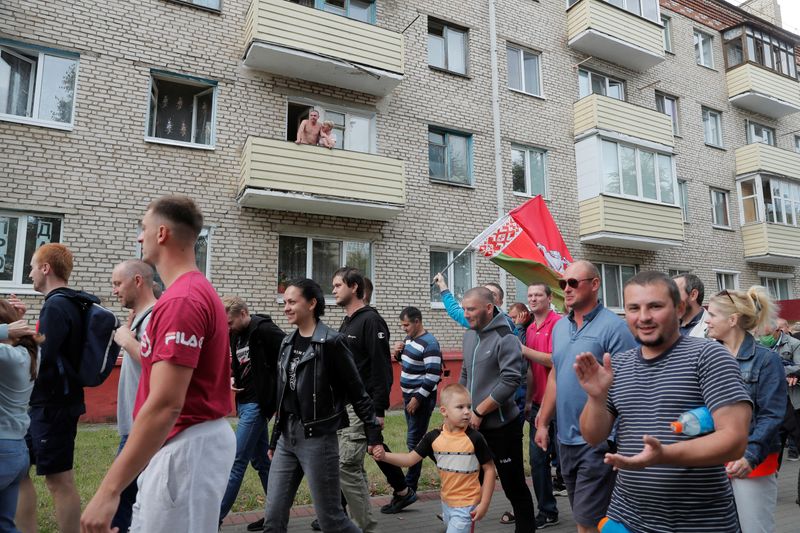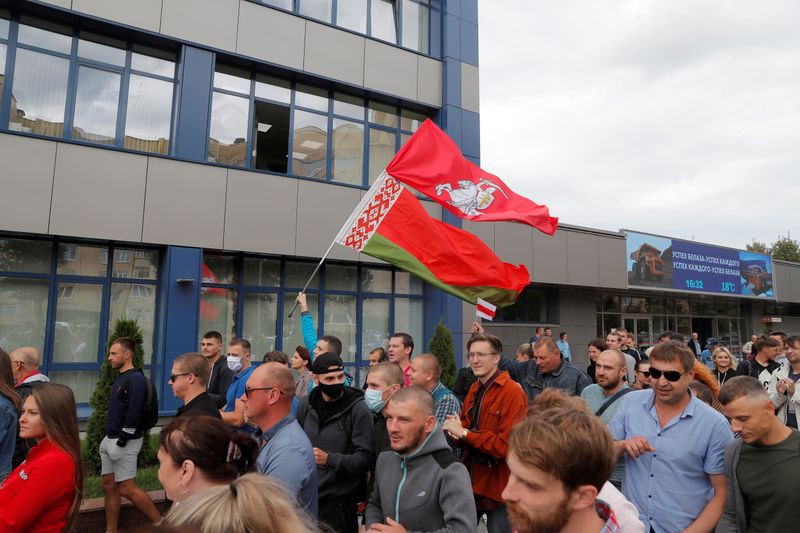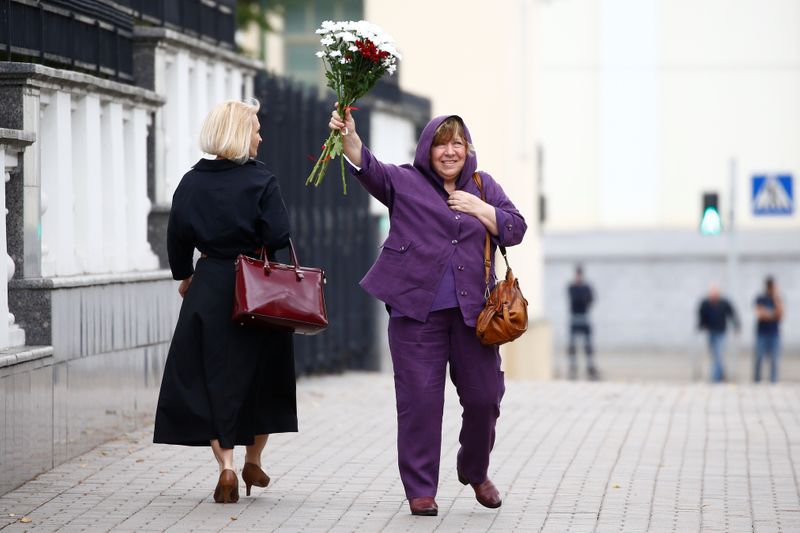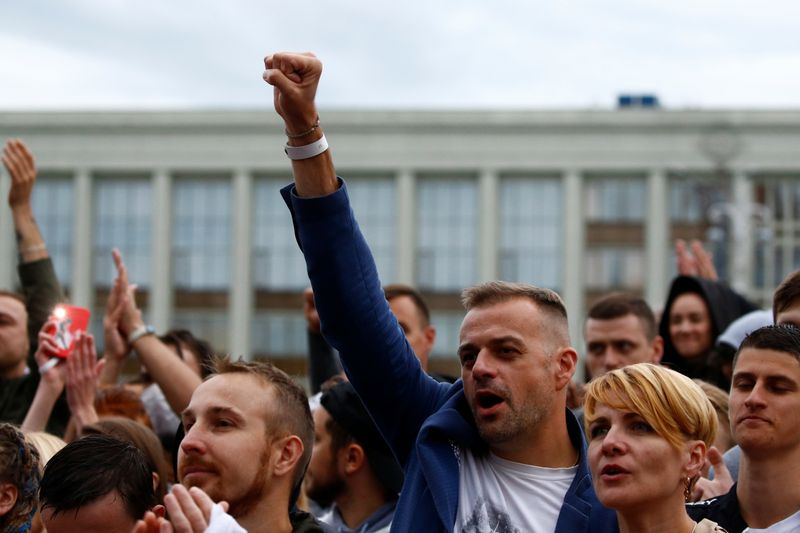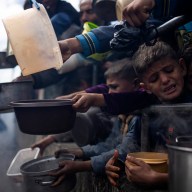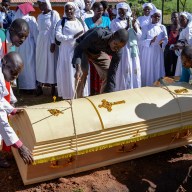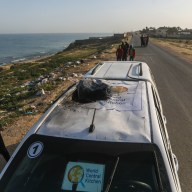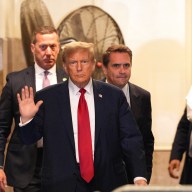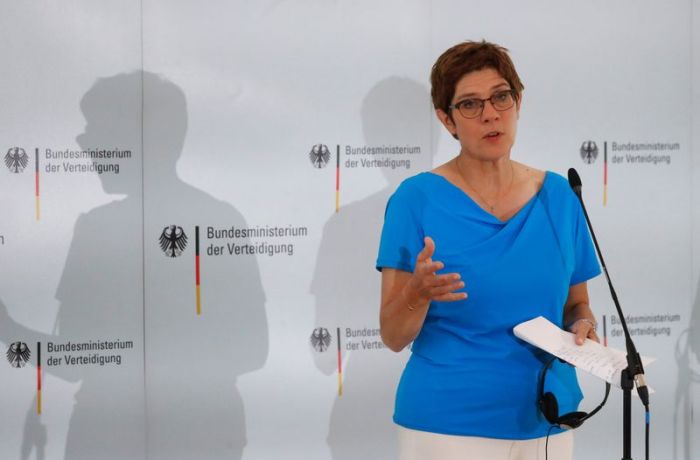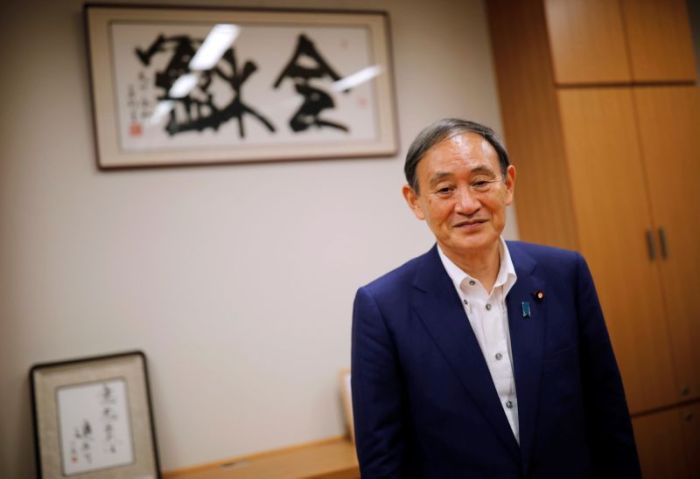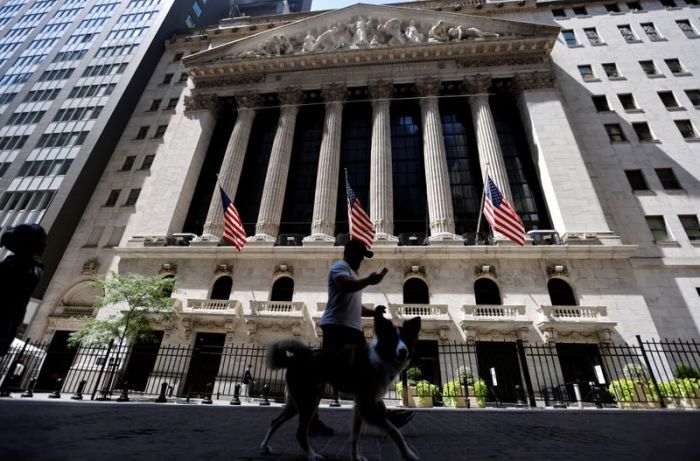MINSK (Reuters) – Belarus’s most celebrated writer called on Russia on Wednesday to help persuade President Alexander Lukashenko to negotiate, as she arrived for questioning in a criminal case accusing an opposition body of an illegal attempt to seize power.
“Now Lukashenko speaks only to Putin. We need him to speak to the people,” Svetlana Alexievich, winner of the 2015 Nobel Prize for Literature, told reporters outside the Investigative Committee, where she appeared for questioning.
“Maybe the world can help us, so that Lukashenko will negotiate with somebody,” she said. “We need the world to help, and maybe Russia.”
She emerged after a short time and said she had invoked her right not to testify against herself. She said there was no basis for the investigation, adding: “The more we stay together, the stronger we will be, and the greater chance we will have of making the authorities talk to us.”
Alexievich is one of dozens of public figures who formed the opposition Coordination Council last week, with the stated aim of negotiating a peaceful transition of power after an election the opposition says was rigged.
Lukashenko called it an attempt to seize power illegally. Two of its leaders were jailed on Tuesday.
At least 20 people were detained as police cleared Minsk’s Independence Square of hundreds of protesters on Wednesday evening, a Reuters witness said. Local media also reported detentions elsewhere in Minsk and the city of Brest.
At the suggestion of the Coordination Council, residents had also formed long queues in several parts of the capital to sign a petition demanding the resignation of lawmakers in a parliament that remains outwardly loyal to Lukashenko.
Rights groups said Belarusian police had rounded up dozens of protesters heading home from peaceful demonstrations on Tuesday after days in which the authorities exercised comparative restraint towards anti-government rallies.
Lukashenko has faced more than two weeks of mass demonstrations against his 26-year-old rule since the election, which official results say he won with 80 percent of the vote. He denies electoral fraud and says the protests are funded from abroad.
Although Lukashenko has called the protesters “rats” and said he has given the order to clear them from the streets, police had been comparatively restrained in recent days, apparently wary of a crackdown that would add to public anger.
BEATINGS
In the early days of the protests, police beat demonstrators and many of those who were arrested emerged with heavy bruises and said they had been abused in detention. In her comments before questioning, Alexievich deplored that violence.
“For God’s sake let there not be blood spilled,” she said. “What we saw the first three days, when they turned people into meat, that is from last century.”
Rights group Spring listed more than 30 people it said had been arrested on Tuesday. In one typical account, a man wearing a red-and-white opposition flag on his shoulder was walking with his wife and young son, when an unmarked car pulled up, the group said. Two men in plain clothes jumped out, pushed the woman and child away, shoved the man into the car and drove off.
The Interior Ministry said police had detained 51 people for administrative violations after unsanctioned rallies on Tuesday. It typically reports dozens of such arrests per day.
Belarus has the closest cultural, economic and political ties to Russia of any former Soviet state. Russia has signalled its support for Lukashenko, including sending journalists to staff state television after workers quit in protest against what they described as orders to broadcast propaganda.
But it remains to be seen how long the Kremlin will stick by Lukashenko if his authority continues to ebb away. He has long had a difficult personal relationship with Russian President Vladimir Putin.
A Russian government plane which is used to carry senior government officials, including the head of the FSB security service, landed in Minsk on Wednesday, flight tracking data showed.
This was its second such flight in just over a week. Reuters could not determine who was aboard.
(Reporting by Andrei Makhovsky in Minsk; Additional reporting by Vladimir Kostin in Minsk and Rinat Sagdiev in Moscow; Writing by Peter Graff and Matthias Williams; Editing by Jon Boyle, William Maclean and Grant McCool)

